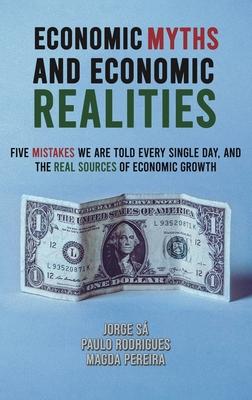The world's ten richest countries have about 60 times the income per capita of the bottom ten. Nobel Prize-winning economists have acknowledged their ignorance regarding the sources of economic growth. This explains why, despite considerable financial assistance, the gap between poorer and richer countries has grown year after year, both globally and within countries like the USA and Europe.
Using straightforward statistical diagrams, this book explains approximately 90% of the variance in income among countries or states. First, it empirically demonstrates what does not work - the myths - from reindustrialization to Keynesianism. Then, it examines the real drivers of growth by evaluating whole countries (public, social and private sectors combined, including the non-working population) as companies, assessing their business administration across areas like marketing, work culture, strategy and operations. After all, numerous multinationals are larger than countries.
The lessons are twofold: First, nothing is more pointless than perfecting the irrelevant. Second, there are no underdeveloped countries, only undermanaged ones (P. Drucker). The wealthiest countries are, overall, the best-run companies.
